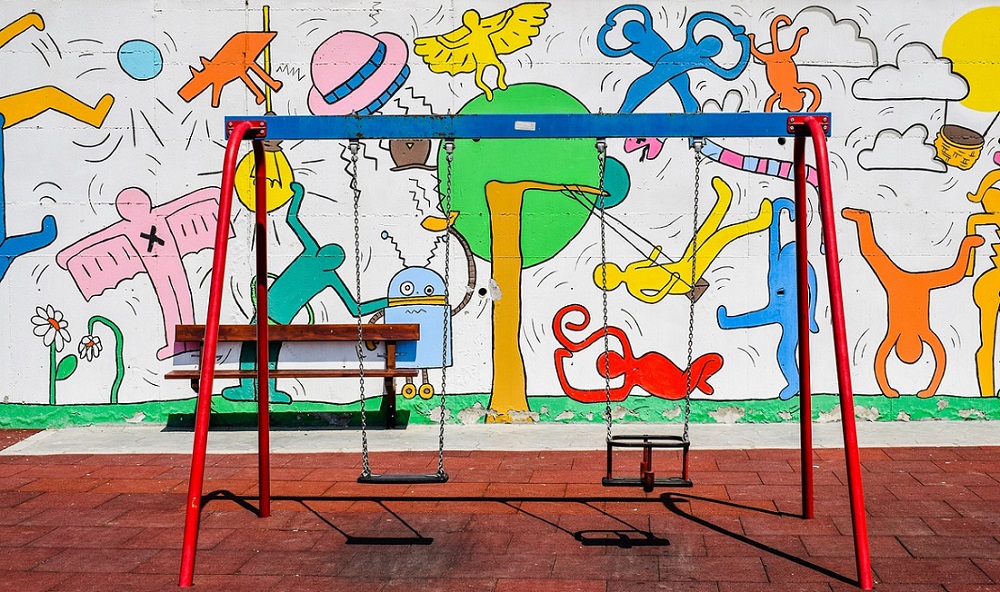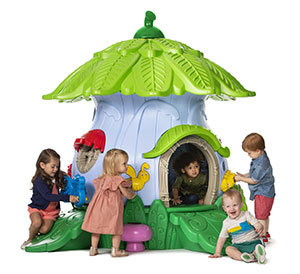The Importance of Playgrounds for Children
There's nothing quite like getting the opportunity to leave the classroom behind and go on adventures on the playground with friends and classmates. However, thanks to emerging technologies, an abundance of scheduled activities, and an increased focus on academics, children have fewer opportunities to go outside and play on the playground. This loss of free play time can negatively impact children's development. Playgrounds are essential spaces where children can express themselves, grow, and learn.
Playgrounds are a great place for kids to develop their physical, emotional, social, and imaginative skills. These skills help them gain self-confidence, advance their critical thinking skills, and improve coordination.
- Play fosters cognitive growth.
- Play builds imagination and creativity.
- Play encourages independence.
- Play improves reflexes, balance, and motor control.
Experts across multiple fields have conducted studies about the concept of childhood movement and play, and all of them have come to the conclusion that it's essential to the development of coordination, motor skills, social awareness, cognitive abilities, language, and so much more.
Play allows kids to indulge their natural curiosity, and as they grow, so does the way they play. They go from simple ideas to much more detailed activities and games to go along with how much they've learned. Without play, these abilities to develop and grow are stunted.
Playgrounds are great places for kids to engage in free, spontaneous play. The different structures guide children's play, and open space provides limitless opportunities. A good mix of open space and structures gives kids the freedom to choose how they want to play so they can explore their interests, interact with other kids, and awaken their creative instincts.
- Unstructured play helps kids make their own games and guidelines.
- Unstructured play helps kids improve their problem-solving abilities.
- Learning through play encourages good social skills and teamwork.
- The most significant amount of development occurs in the first few years of life so adequate stimulation is important.
- Children's play reinforces their learning in multiple areas.
Kids on the playground are not only having fun, but they're also definitely getting in a good workout. The CDC recommends 60 minutes of physical activity every day, and a playground is a perfect place to do it. The playground provides a place for children to get a full-body workout, since there are play structures that can help them strengthen their arms, legs, and torsos. And allowing kids to play on the playground for up to an hour every day allows them to see exercise as something enjoyable, which can help encourage them to stay physically active as they grow older.

While playing on the playground, kids can test their limits and hone diverse skill sets. They'll be able to improve their flexibility and balance, work on their motor skills, and strengthen their muscles, and all of this exercise has the added benefits of improving immune function, helping the heart and lungs become healthier, and lowering the risk of obesity and diabetes.
- Active play is critical for kids' physical development.
- The first five years of life are the most important years for childhood growth and development.
- Play improves strength, flexibility, and coordination through increasingly difficult physical tasks.
- One to three hours every day is an optimal amount of time for kids to play to improve health and growth.
Play can be a solitary activity, but it can also help kids make friends, especially if you bring your child to a playground where other kids will likely be. Meeting new kids on the playground is important because it teaches them about how to interact with other people and social norms. These are abilities that will come in handy as they grow up and need to interact with people at work or make new friends as an adult. Kids can learn about getting along, cooperation, agreeing on the rules of a game, patience, taking turns, overcoming shyness, sharing, resolving conflict, and accepting diversity on the playground.
- Believe it or not, the playground can be a complex social space where kids learn everyday life lessons.
- Social development on the playground helps kids become more independent.
- Almost every classic playground activity can boost your child's development in some way.
The emotional benefits of playing on the playground are not as easily seen as the physical and social benefits, but that doesn't mean that they aren't there. Your child will experience subtle emotional changes that are vitally important to their growth and development. Free play on the playground can help boost self-confidence and self-esteem in kids because they're allowed the freedom to make their own choices while they play and master the playground equipment. Playing also allows them to retain a sense of control that they aren't always able to have in other areas of their lives. Since they also meet so many new people and have to learn how to get along with them, kids who play on the playground more often are less likely to be a bully because they're used to more positive activities. Play can also teach kids how to deal with challenges in a healthy and constructive way that will improve their attitudes as they get older.
- Unstructured playtime allows children to find healthy ways to deal with their emotions.
- Kids who live closer to parks and open spaces are less likely to be stressed than kids who don't have access to playgrounds.
- Play allows kids to learn self-regulation, or the ability to be aware of their own sensory and emotional needs.
- Now more than ever, kids are dealing with new challenges, and free play can help them regulate difficult emotions that can result.
There's so much more to playing on the playground than just swinging, sliding, or climbing all over the equipment. Having free rein of the playground and open spaces allows kids to come up with their own games and activities that they share with their new friends, working their minds as well as their bodies. If you listen to the conversations between the kids, you'll realize that kids are often coming up with imaginary games together. These make-believe games teach them social roles, foster the ability to problem-solve, and can even help them develop their personality. They discover a strong sense of self as well as their likes and dislikes thanks to these games. Their identity will continue to grow and change throughout their lives, but the foundation begins on the playground.
- Play provides kids a chance to develop their creative thinking skills.
- Imaginative play gives parents a fun way to teach positive behavior to kids.
- It's not just playgrounds that nurture imagination; any object combined with free play can spark creativity.
- Imaginative play allows kids to discover the outcome of decisions in a safe and controlled environment.
Edited by: Ben Thompson

